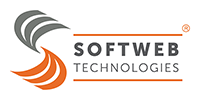In the rapidly evolving landscape of Industry 4.0, the integration of smart technologies and automation has become synonymous with revolutionizing efficiency in manufacturing. The symbiotic relationship between Industry 4.0 and factory automation has paved the way for transformative changes, redefining how we approach production processes.
Introduction
Industry 4.0 represents the fourth industrial revolution, characterized by the fusion of digital technologies, data analytics, and smart automation. At its core, this revolution aims to create a more efficient and connected manufacturing ecosystem. In this article, we delve into the profound impact of factory automation within the context of Industry 4.0, exploring the benefits, challenges, and future trends that shape the landscape of modern manufacturing.
Understanding Factory Automation
Factory automation involves the use of control systems for operating equipment in factories, reducing the need for human intervention in routine tasks. This encompasses a spectrum of technologies, including robotics, sensors, and artificial intelligence, all working in unison to streamline processes and boost productivity.
Industry 4.0 and Its Impact
The marriage of Industry 4.0 principles with factory automation has ushered in an era of connected, intelligent manufacturing. Smart factories leverage data analytics, the Internet of Things (IoT), and cyber-physical systems to create a more responsive and agile production environment.
Benefits of Factory Automation in Efficiency
One of the paramount advantages of factory automation lies in its ability to enhance production speed. Automated systems can operate 24/7, significantly reducing production cycle times and accelerating time-to-market. Furthermore, automation contributes to improved quality control by minimizing human errors and variations in output. The use of automation can lead to significant cost savings for businesses, with a study by the McKinsey Global Institute finding that up to 20% of labor costs can be saved through the use of automation.
Case Studies of Successful Implementations
Real-world examples from diverse industries showcase the tangible benefits of embracing factory automation. Whether in automotive assembly lines or pharmaceutical manufacturing, the implementation of smart technologies has resulted in increased efficiency, reduced costs, and heightened competitiveness.
Challenges and Solutions
While the benefits are substantial, the adoption of factory automation comes with its share of challenges. Resistance to change, cybersecurity risks, and the complexity of integration are common hurdles. Strategies to overcome these challenges involve cultivating a change-ready culture, implementing robust cybersecurity measures, and adopting an iterative approach to integration.
Future Trends in Factory Automation
The future of factory automation holds exciting possibilities, with emerging technologies such as edge computing, 3D printing, and advanced robotics poised to redefine manufacturing processes. As smart factories continue to evolve, staying abreast of these trends is crucial for businesses aiming to maintain a competitive edge.
Sustainability Through Automation
Beyond efficiency gains, factory automation contributes to sustainability initiatives. Reduced waste, optimized energy consumption, and eco-friendly practices are byproducts of a well-implemented automation strategy, aligning with global efforts toward environmental responsibility.
AI and Machine Learning Roles
Artificial intelligence and machine learning play pivotal roles in the automation landscape. From predictive maintenance to adaptive learning systems, these technologies enhance the capabilities of automated systems, making them more intelligent, adaptable, and responsive to dynamic production environments.
Human-Machine Collaboration
Contrary to the notion of complete automation, successful smart manufacturing embraces human-machine collaboration. While machines excel in repetitive and data-driven tasks, human intuition, creativity, and problem-solving skills remain irreplaceable. Striking the right balance ensures optimal efficiency and innovation.
Regulatory Landscape
As Industry 4.0 continues to evolve, navigating the regulatory landscape becomes paramount. Compliance with industry standards, data protection regulations, and ethical considerations is essential for businesses operating in automated manufacturing environments.
Cost-Benefit Analysis of Automation
A critical aspect of adopting factory automation is conducting a thorough cost-benefit analysis. While the initial investment may be substantial, the long-term gains in efficiency, reduced operational costs, and increased competitiveness often outweigh the upfront expenditures.
Training and Skill Development
Addressing the workforce transition is a key consideration in the era of smart manufacturing. Investing in training and skill development ensures that employees are equipped to operate and troubleshoot automated systems, fostering a smooth transition and minimizing disruptions.
Selecting an ideal partner to provide Factory automation solutions which comes up with above mentioned parameters as well as keeping the safety and security of the plant is important.
Softweb Technologies’ SIM 4.0 is modern age solution for smart factory automation helping manufacturing industries across industries to gain operational excellence.
the fusion of Industry 4.0 and factory automation marks a paradigm shift in the manufacturing landscape. The synergies created by smart technologies have the potential to revolutionize efficiency, drive innovation, and position businesses for sustained success in an increasingly competitive global market.
To Learn More about SIM 4.0 and Smart Factory Automation,
Book a Free Demo here

